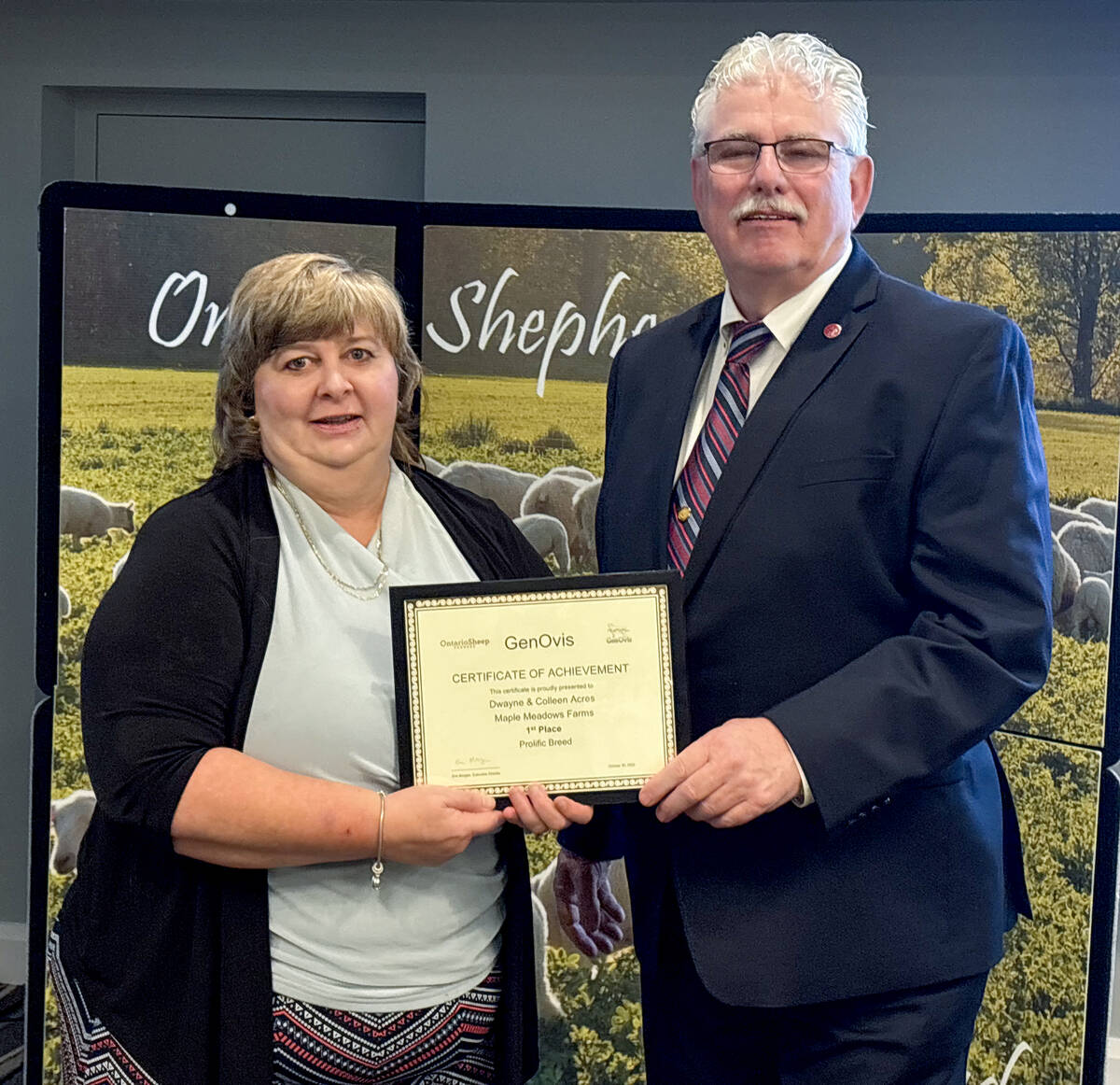The organization representing dairy processors says it is resolutely against the new United States Mexico Canada Agreement (USMCA) trade deal.
The CEO of the lobby organization representing processors told Farmtario in early October that he “anxiously awaits the Canadian text to be published” containing the deal’s precise details. “Canada’s dairy processing industry is deeply disappointed in the government of Canada’s decision to make significant concessions to the United States” in order to reach agreement, said Dairy Processors of Canada (DPAC) CEO Mathieu Frigon.
Read Also

GenOvis awards presented at Ontario Sheep Farmers’ annual meeting
Producers and youth were recognized for their contributions during the Ontario Sheep Farmers’ annual GenOvis and leadership awards.
Why it matters: Depending on which products represent each company’s line of business, the potential benefits or drawbacks of USMCA for processors will vary, but as a sector-wide representative, DPAC has been very clear: The organization stands in support of the country’s dairy farmers in strong opposition to the deal.
“Over the past year and a half, we have repeatedly heard our government state that it would stand up for the Canadian dairy sector,” Frigon said in an official DPAC message sent out following the inking of the draft deal on Oct. 1. “However, what was agreed to last night demonstrates very little support for our interests.”
There have been suggestions processors would benefit from the elimination of Class 7.
In a a statement made in June, 2018 by Saputo CEO Lino Saputo Jr., in reference to what were then ongoing NAFTA renegotiation talks, he said that “(Canadian dairy farmers) want their cake and they want to eat it too. Which doesn’t make sense. You can’t hold onto your milk supply-managed system and have a class of milk competing with world markets at the same time.”

By contrast, when contacted last week by Farmtario, a representative from Saputo’s communications department responded the company is “taking the time to review and understand the proposed changes and their full implications for Canada’s dairy industry.”
The representative added the company “(does) not have any comment at this time, and has not made any comments in the media about the USMCA.”
Some Canadian dairy processors, though, have felt confident enough about their assessment of the deal’s potential effects to make public statements. USMCA, states an official release from the Mississauga-based Gay Lea Foods farmer-owned co-op, “will have destabilizing and detrimental impacts on the Canadian dairy industry.”
The news release says that “since 2014, Gay Lea Foods has been investing heavily in our existing operations, made strategic acquisitions to grow our business, and committed over $300 million to new processing capacity and capabilities.” USMCA, the company suggests, throws the wisdom of at least some of those financial decisions into question: “Over the coming days and weeks, we will work with federal and provincial governments to assess the full impact and what would be required for the continued viability of our facilities, current expansion projects, and our future as a dairy co-operative.”
DPAC, which counts both Saputo and Gay Lea Foods as members, has been equally clear about its stance.
“It is clear that dairy processors will be very negatively impacted by this new agreement,” Frigon told Farmtario. Adding in the effects of commitments made in previously-negotiated trade agreements covering the European Union (CETA) and the Pacific rim, the DPAC CEO explained, “we have estimated the losses (to domestic processors) to be more than $2 billion over the course of implementation, all of which will decrease production and greatly affect the dairy processing industry’s ability to see return on investment.”
In the interview, Frigon called on the federal government to create a compensation strategy for Canada’s dairy processors. And he called for that strategy to differ significantly from the one rolled out after CETA granted over three per cent access into the country’s dairy market.
“Significant further losses (over and above the estimated $2 billion due to lost market access) will result from Canada’s agreeing to suddenly change its domestic dairy policies as a part of the USMCA,” the DPAC CEO said. “The Canadian government must not repeat the mistake it made with CETA, where it provided compensation — in the form of Tariff Rate Quota allocations — to those who already saw CETA as a great opportunity.”
This time around, he argued, allocations should be limited only to those processors adversely affected by the new deal.
“Allocating Tariff Rate Quota is the only way to allow the dairy processing industry to recoup part of the lost return on investment resulting from these trade agreements, encourage future investments in the Canadian dairy sector, and protect the Canadians it employs,” Frigon said.
A representative of Feihe, a new dairy processing plant being constructed in Kingston to produce infant formula for export to China, said not enough details were known at this point to comment.















